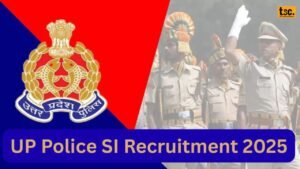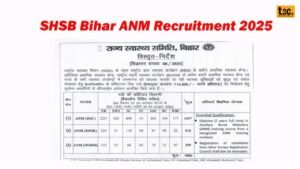Hunger Strikes in India : Legal Rights and State Intervention

Let’s discuss hunger Strikes in India and its Legal Rights, Ethical Dilemmas, and State Intervention. In India, people have historically used hunger strikes as a form of protest to voice political dissent or demand specific rights. While Indian law does not explicitly address hunger strikes, several constitutional principles, legal rights, and human rights standards provide a framework for understanding and regulating them.
Here is an outline of how Indian laws and legal principles relate to hunger strikes:
1. Right to Protest and Expression
- Constitutional Protections: The Indian Constitution guarantees fundamental rights under Part III. The most relevant right for hunger strikes is the Right to Freedom of Speech and Expression (Article 19(1)(a)) and the Right to Assemble Peacefully (Article 19(1)(b)). These provisions protect an individual’s ability to protest, express dissent, and engage in peaceful assembly, which includes hunger strikes.
- Article 19 allows citizens to express themselves freely, which includes using hunger strikes as a form of protest against government policies or actions.
- Article 21 of the Constitution also guarantees the Right to Life and Personal Liberty, which has been interpreted to include the right to make personal choices related to one’s body and health, including the decision to fast (as part of protest or religious practice).
2. Health and Safety Considerations
- Right to Life: Article 21 of the Indian Constitution guarantees the right to life and personal liberty. The courts have interpreted this to include the right to live with dignity, which may conflict with the consequences of a hunger strike if it poses a significant threat to the individual’s health and life.
- In the case of Kharak Singh v. State of Uttar Pradesh (1963), the Supreme Court held that the right to life and personal liberty includes the right to live with dignity.
- The Right to Life has been extended by courts to include the right to make autonomous decisions about one’s own health. In some instances, this has been interpreted as allowing people to refuse medical treatment, including the refusal of food during a hunger strike.
3. Medical Intervention and Force-Feeding
- Force-Feeding: In India, force-feeding someone on a hunger strike raises complex legal and ethical questions, particularly regarding the Right to Life and bodily autonomy. While force-feeding is sometimes justified in cases where an individual’s life is in imminent danger, it can be controversial and may be seen as an infringement on the individual’s personal liberty.
- In some cases, courts have ruled against force-feeding, viewing it as a violation of an individual’s personal autonomy and dignity.
- 9In the case of State of Punjab v. Sukhdev Singh (2002), the Supreme Court emphasized the importance of individual autonomy and the need for caution in using force-feeding as a means of intervention during a hunger strike.
4. Prisoners and Hunger Strikes
- Prisoners’ Rights: Hunger strikes are commonly used by prisoners to protest conditions, treatment, or political issues. In Indian prisons, hunger strikes have been a method of expressing dissatisfaction with issues such as delays in trial, prison conditions, or treatment by authorities.
- In the case of Prison Reforms Case (1980), the Supreme Court held that prisoners retain certain fundamental rights under the Constitution, including the right to protest. However, the prison environment and security concerns may limit these rights.
- Courts have also recognized that authorities must protect the Right to Health of prisoners, including monitoring them and providing necessary medical care during a hunger strike.
- In the case of Sunil Batra v. Delhi Administration (1980), the Supreme Court ruled that the state has a duty to protect the health of individuals in detention, including those on hunger strikes.
5. Human Rights and International Law
- International Human Rights Framework: India is a party to various international human rights treaties, such as the International Covenant on Civil and Political Rights (ICCPR), which recognizes the right to freedom of expression and peaceful assembly. These international norms also guide the interpretation of Indian law, particularly in cases involving hunger strikes.
- United Nations Convention Against Torture: Human rights organizations often consider the practice of force-feeding hunger strikers a form of cruel, inhuman, or degrading treatment under international human rights law. Although India has not declared force-feeding unlawful, human rights organizations heavily criticize such acts, and individuals could challenge them in court.
6. Court’s Role in Hunger Strikes
- Judicial Oversight: In cases involving hunger strikes, especially if the individual’s life is in danger, the courts may intervene to balance the right to protest with the state’s obligation to preserve life and health. For instance, in the case of Ram Manohar Lohia (1961), the Supreme Court addressed the issue of the limits of state authority in interfering with individual protests.
- Courts may issue orders to ensure that individuals conduct hunger strikes in a manner that does not pose a grave threat to their lives. In some cases, courts may order medical intervention to prevent death, but they do so cautiously, considering the legal and ethical implications of force-feeding.
7. Legal Restrictions on Hunger Strikes
- National Security and Public Order: Although the right to protest is generally protected, the government may impose certain restrictions on protests, including hunger strikes, especially if it perceives them as a risk to public order or national security. For instance:
- Section 163 of the BNSS, 2023: This provision gives authorities the power to prohibit public gatherings and demonstrations. Only if they believe that these activities could lead to violence or disrupt public order. Authorities could use this to restrict hunger strikes in certain circumstances.
- Preventive Detention: In extreme cases, authorities could detain individuals engaging in hunger strikes under laws like the National Security Act (NSA) or Public Safety Act (PSA) if they see the protest as a threat to national security or public order.
8. Historical Context of Hunger Strikes in India
- Hunger strikes have been historically significant in India, particularly during the freedom struggle. Mahatma Gandhi famously used hunger strikes as a tool to protest British colonial rule and other issues, symbolizing the moral power of nonviolent resistance.
-
9. Ethical and Moral Issues
- There is a significant ethical debate surrounding hunger strikes, especially concerning force-feeding. Critics argue that force-feeding is inhumane and violates the individual’s right to decide what happens to their body. Others, on the other hand, contend that the state has an obligation to protect individuals from self-inflicted harm, particularly if their life is at risk.
Conclusion:
In India, people view hunger strikes as a legitimate form of protest under the Right to Freedom of Expression (Article 19) and the Right to Life (Article 21). Provided they remain peaceful and do not disrupt public order. However, the state has a duty to intervene if a person’s life is at risk, potentially through medical intervention or force-feeding, though this remains controversial. The balance between an individual’s bodily autonomy and the state’s duty to protect life is at the heart of legal and ethical debates surrounding hunger strikes. Thus, hunger Strikes in India and the Legal Rights, Ethical Dilemmas, and State Intervention related to it has been covered in this article.
Stay tuned on our website as if any official information pops up then we will update you in minutes! If you want all the latest updates on time then join our student community on WhatsApp!
Choose the right career yourself by booking personal guidance from professionals on Mytagapp.com!









